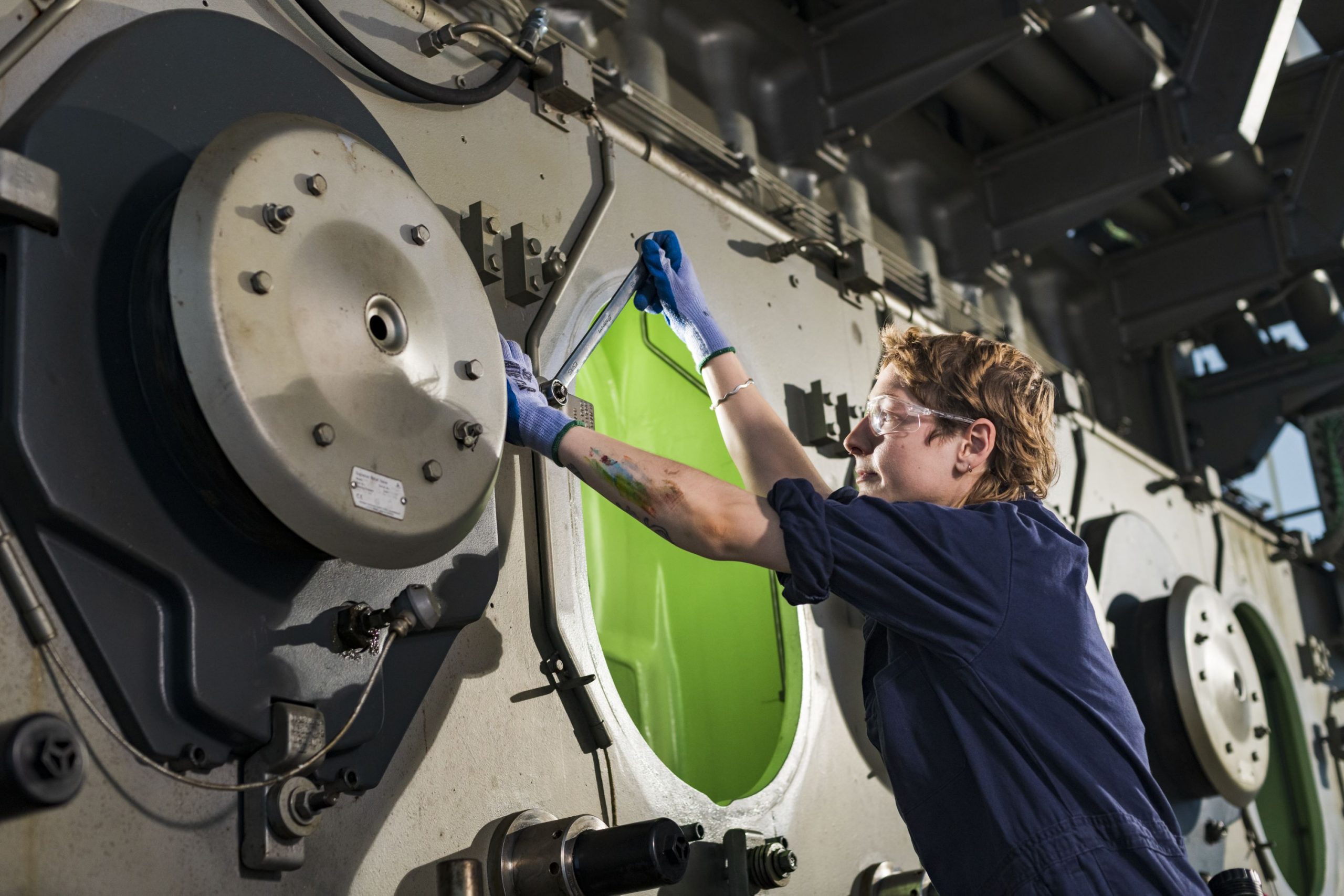According to Engineers Canada, only 20% of newly licensed engineers in Canada identify as women. In support of building an inclusive future in engineering, BCIT is hosting an Engineering Panel Event and Info Session on March 29 from 5:00 pm to 6:30 pm PDT. The panel features notable alumnae and students who will share their career journeys, as well as insights about the different fields of engineering – civil, electrical, mechanical, mining, and marine.
BCIT student Ana Cross is a Marine Engineer Cadet at BC Ferries and one of the panelists for the BCIT Engineering Panel Event and Info Session. In an interview, Ana shares her journey in becoming a Marine Engineer Cadet and advises future women engineers on how to start a career in marine engineering.
Familial influence
Acknowledging her familial ties with the sea, Ana recalls how the careers of both her father and grandfather influenced her decision to become a marine engineer.
“Seeing as all three of us grew up and lived on the coast, it was easy for me to know that I needed to choose a career that kept me close to the sea,” says Ana. “I was never encouraged to choose a marine related field and certainly not marine engineering. Yet, I knew that it was what I wanted.”
Finding the right community
Before becoming a Marine Engineer Cadet, Ana spent time with various departments, but she always found herself gravitating towards the engineers the most.
Ana admired the curious yet professional demeanor of the engineers. She described them as “professionals who seemed to possess a child-like curiosity and appreciation for the world.”
After being in proximity for a while, Ana took a leap of faith. “A recruiter from BC Ferries spoke to me one day about the BCIT Marine Engineering program and something in my gut told me, despite my fear of science and math, that I had to go for it,” she recalls. Following her passion, Ana applied to the program and was accepted into the following years’ cohort.
Ana’s affinity toward her fellow engineers continued to grow. She describes the engineers as creative, relentlessly determined, physically and mentally fit, and ferociously independent.
While in the pursuit of her career, Ana made lifelong friends by being in what she felt was the right community for her. “I found my people,” she says.
Tips for starting a career in Marine Engineering
Here are Ana’s top three tips for those considering a career in marine engineering:
- Apply to the BCIT Marine Engineering program. The program is industry-focused and practical. It provides job-ready knowledge as well as contacts in the marine industry, and this will greatly expediate your journey to becoming a ticketed officer.
- The marine world is very small, and networking is huge. If you have contacts, consider reaching out to them because you never know who will open what doors for you.
- Apply to be an Engine Room Assistant (ERA) for BC Ferries. They currently have sponsorship programs and support for aspiring marine engineering officers.
Learning and growing from diversity
After years of being a Marine Engineer, Ana is grateful for where marine engineering has led her. She credits her engineering profession for the life skills and priceless experience she gained.
Ana also felt that her career has given her the opportunity to challenge the status quo. “I feel as though I am exactly where I need to be, having the discussions I want to have with people that inspire and challenge me,” she says. “We have difficult conversations, we disagree, we agree, we engage, and we work together.”
Upon reflecting on her experience as a woman in the engineering profession, Ana acknowledges the challenges she faced. In a mostly male-dominated industry, Ana shares that there were times where she felt lonely. “I’ve found I’ve had to try hard to prove [that] I am capable, but this added pressure has also pushed me to learn and grow, so I’m ultimately grateful for it,” she says.
Looking to the future, Ana is hopeful for more gender inclusivity in the industry. “It has been a process of learning to trust each other,” she says. “I find gender just stops mattering.”
More from Ana Cross
If you’d like to hear more from Ana, sign-up to attend the upcoming BCIT Engineering Panel Event and Info Session. Ana, along with four other panelists, will share the highlights and challenges of their rewarding careers, and impart their advice on how to leverage BCIT’s hands-on learning and industry connections to excel in the field.
If you’re interested in an engineering career, or if you’d like to learn more on how BCIT is supporting women in our engineering programs, don’t wait to register.
“The more diversity you have within a team, the more resources you have to solve a problem.” – Ana Cross
